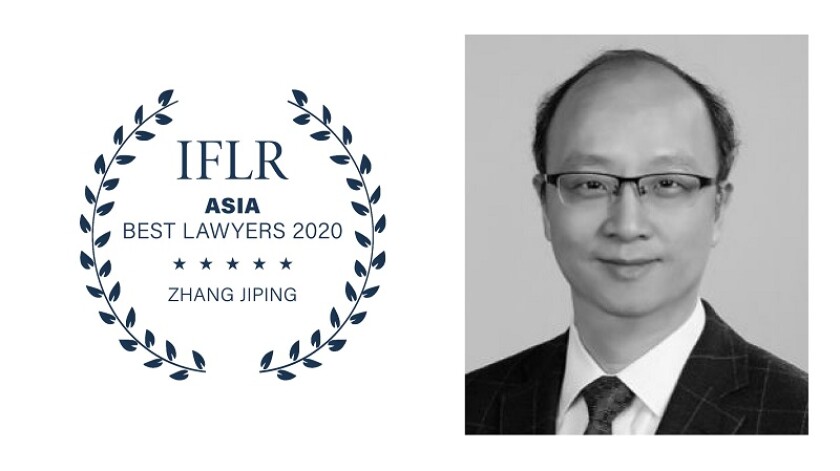As an IFLR1000 Market Leader in China for banking, capital markets, private equity and M&A, what do you consider to be the greatest achievements of your career?
I would not consider myself to have achieved anything particularly outstanding, but I think to be able to work alongside my colleagues at Haiwen and to serve our clients during this period of rapid development in China’s economy and legal market is, in itself, something to be proud of.
What advice would you give to lawyers in junior positions to encourage them to work towards success?
Have faith in hard work. Ultimately, perseverance prevails.
|
|
Compared with international lawyers, I have noticed that junior lawyers in the PRC spend much more time on legal research |
|
|
What do you feel are the biggest obstacles for young and prospective lawyers in your country?
Compared with international lawyers, I have noticed that junior lawyers in the PRC spend much more time on legal research and in conducting all sorts of consultations to find out about regulatory requirements, what regulators really want, and how to satisfy their demands. This has to do with the current state of development of the legal system, the amount of discretion that regulators often have, and an inconsistency in implementation. This type of work can not only be demoralising, but in the long term, may also inhibit the development of critical thinking.
What does your firm do to nurture and promote talent? Do you think it compares well to others in your market in this area?
We believe that leading by example is better than by precept, so in Haiwen, partners work alongside associates in all transactions. We also encourage open discussions about all kinds of legal issues and the sharing of expertise across the firm. We are proud of the quality of our colleagues and the work they do.
If you could introduce one policy across the entire legal profession what would it be?
It might the dream of most lawyers that the entire profession had to strictly bill by hours… but that is not how things work!
Are there any initiatives in the firm to help your clients deal with the repercussions of the Covid-19 pandemic?
Haiwen’s lawyers are doing all they can to help clients continue with their transactions during the Covid-19 pandemic. This includes adapting to flexible working arrangements, remote working, optimising our travel arrangements and other initiatives. We have also prepared articles addressing special legal issues arising from the pandemic to help clients navigate their operational and compliance needs.
Given the environment in China, what do you think the market outlook is over the coming year?
I think China’s economy will remain vibrant in many respects, and in conjunction with the ‘dual-cycle development pattern’ - as promoted by the government - I expect domestic transactions, including capital markets deals, M&A and investments, to become ever more active.
What kind of work do you expect will keep you busy over the next 12 months?
From the firm’s perspective, I expect we will be busy on a lot of fronts over the next 12 months, including M&A work, capital markets, IP, bankruptcy and restructuring, fund formation, banking, and other areas.
|
|
There have been, or will be, a lot of regulatory changes and initiatives that investors should be aware of |
|
|
Are there any upcoming regulatory changes or initiatives that investors should be aware of?
China has accelerated its policy of opening up to the outside world over the past few years. There have been, or will be, a lot of regulatory changes and initiatives that investors should be aware of, including the lifting of restrictions on foreign ownership caps in the financial industries (including life insurance companies, banks, securities houses, mutual fund management companies and privately placed securities investment management companies, among others). Another significant change will be in the vetting system for the IPOs on the A share market, which will evolve from the traditional approval system to a registration system, which is a more disclosure-based vetting system closer to international practice. In addition, there will be more regulations on data privacy, data protection, and data export. Finally, we are also expecting amendments to the patent laws.
What do you feel is the biggest misconception others have about your market?
Companies with experience in our market have no misconceptions. For the newcomers, especially in certain regulated areas, I think the biggest misconception is that personal relationships matter more than the professionalism.
What is the one thing you think the IFLR’s international audience should know about how to successfully do business in your market?
From the international clients’ perspective, one thing I think they should do is strive to have local people in key positions in their organisations, while maintaining their own or international standards. China has plenty of talented people, many of whom have international training. Having a local leadership team does not mean that international clients need to water down their standards.


